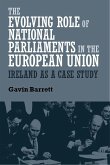European Union Birth meticulously chronicles the EU's complex origins, from post-World War II aspirations to the Maastricht Treaty. It reveals how political ambition, economic necessity, and historical context intertwined to shape this unique experiment in international cooperation. The book emphasizes that the EU's formation wasn't a straightforward path but a series of pragmatic responses to specific challenges. For example, the establishment of the European Coal and Steel Community (ECSC) aimed to prevent future wars by integrating vital industries, laying the groundwork for broader economic cooperation. The book explores key events and milestones, like the Treaties of Rome, while also addressing periods of crisis that tested the balance between national sovereignty and supranational governance. It underscores that the EU's evolution was shaped by competing interests and shifting international dynamics. Unfolding chronologically, each chapter analyzes major treaties and their impact, culminating in an analysis of the Maastricht Treaty and its implications. This approach provides readers with a comprehensive understanding of the EU's formation and its relevance to today's global challenges.
Dieser Download kann aus rechtlichen Gründen nur mit Rechnungsadresse in A, B, BG, CY, CZ, D, DK, EW, E, FIN, F, GR, H, IRL, I, LT, L, LR, M, NL, PL, P, R, S, SLO, SK ausgeliefert werden.









